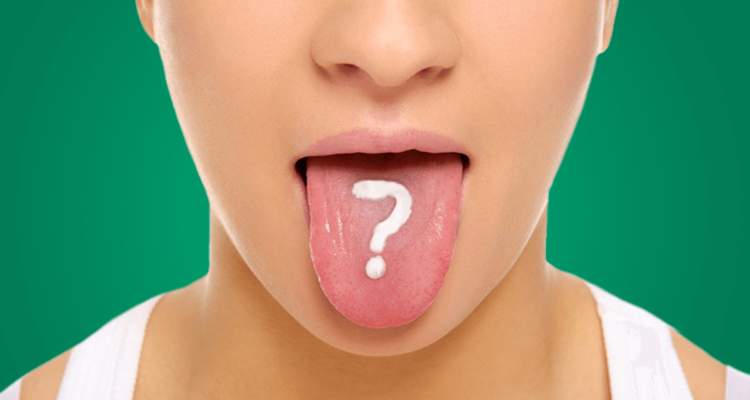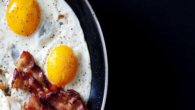
Where does the bitter taste in the mouth come from and what to do about it
0 < p>Usually the causes are quite innocent, but it happens that this symptom indicates a dangerous disease.
1. Dry mouth
The perception of taste largely depends on the composition and number of bacteria living in the oral cavity.
Saliva with its antibacterial properties reduces the number of microorganisms. Therefore, when the mouth is dry, microbes multiply more actively. Because of this, taste sensations change, including bitterness in the mouth.
What to do
To start, rinse your mouth properly and drink a glass of water. Or chew sugar-free gum – this will help increase saliva production.
So that the bitter aftertaste does not appear again, try to drink a glass of liquid (water, tea, compote, fruit juice) at least once every couple of hours.
2. Poor oral hygiene
Because of it, bacteria multiply in the mouth, and some of them can cause a bitter taste.
What to do
Thoroughly brush your teeth again: spend at least 2 minutes on the procedure and use dental floss. In the future, try to monitor oral hygiene: bacteria can lead not only to unpleasant taste sensations, but also to very painful caries.
3. Pine nut syndrome
In some people, pine nuts cause an interesting reaction – within two days after the treat, a bitter metallic taste may appear in the mouth. When using other products, the latter will only intensify. Scientists call this effect pine nut syndrome.
What to do
Wait. Usually, the bitterness in the mouth disappears by itself after 2-4 weeks.
4. Pregnancy
Pregnancy is often accompanied by changes in taste. This is caused by the hormonal restructuring of the body, as well as the reaction of the immune system and changes in the composition of the blood.
Usually expectant mothers complain of a metallic taste in the mouth, but sometimes a feeling of bitterness may appear.
< strong>What to do
Just wait. Strange taste sensations, as a rule, arise only in the first trimester of pregnancy and disappear by the middle of the term.
5. Side effect of drugs
The authors of the study calculated that at least 250 different drugs can cause bitterness in the mouth. Among them are popular:
- antibiotics, such as tetracycline or quinolone series;
- medicines for hypertension;
- diuretic;
- migraine medications;
- myorelaxants;
- antidepressants, in particular, most tricyclics;
- sedatives and hypnotics;
- antihistamines;
- li>
- various anti-inflammatory, antiviral and antifungal drugs.
In each case, changes in taste occur for different reasons. Yes, some drugs affect the composition of saliva, while others act directly on the brain and cause failures in the areas responsible for taste perception.
What to do
If you suspect that the bitterness in your mouth is related to medication, consult your doctor. Perhaps he will choose another drug for you without a similar side effect.
6. Heartburn
It appears when gastric juice rises into the esophagus and irritates its walls. Most often, heartburn is accompanied by burning in the chest and the appearance of a sour taste. But sometimes the mouth can be bitter.
Keep in mind that if heartburn attacks are repeated more than a couple of times a week, doctors talk about gastroesophageal reflux disease (GERD). This is a condition that needs to be treated.
What to do
If you suspect GERD, you should consult a general practitioner or a gastroenterologist immediately. To cope with heartburn, the doctor will recommend that you change your lifestyle a little: reduce the volume of portions, refuse fatty and fried food, not eat before going to bed and sleep on a pillow. The latter is necessary so that the head is above the level of the chest during sleep. However, sometimes GERD can only be managed with medication.
7. Zinc deficiency
This is a common cause of taste disturbances.
Scientists have not yet fully figured out why. But there is a version. It is known that zinc increases the concentration of protein, which is needed by the body to renew the taste buds. When the mineral is lacking, they recover more poorly and begin to fail.
In particular, zinc deficiency affects the perception of bitter taste: it becomes stronger and more pronounced, due to which even fairly neutral foods begin to taste bitter.
What to do
Consult with a therapist. Zinc deficiency can usually be detected by a blood test for this mineral.
If the deficiency is confirmed, the doctor will suggest eating more foods with a high zinc content:
- beans and other legumes;
- red meat;
- molluscs;
- pumpkin seeds and cashew nuts;
- dark chocolate;
- cheese.
In addition, the specialist will try establish the reason why you feel the lack of an important element and help to correct it.
8. Hepatitis B
A persistent bitter taste in the mouth can be one of the early symptoms of liver damage – in particular, hepatitis B.
Other early signs of the disease include:
- bad breath;
- loss of appetite;
- temperature slightly above 37 °C;
- nausea;
- diarrhea.
What to do
Do not tolerate. If bitterness in your mouth haunts you regularly, and even more so if it is accompanied by other symptoms, try to see a therapist as soon as possible. The doctor will conduct an examination, ask you about other symptoms and, most likely, prescribe a referral for tests. Depending on their results, you will be prescribed treatment.
9. Inflammatory or autoimmune disease
In response to the inflammatory process, specific proteins are produced in the body. One of them, the so-called TNF-α, is able to affect taste sensations and cause bitterness in the mouth.
What to do
As in the previous case, one piece of advice: don't tolerate it. Bitterness in the mouth regularly occurs – a reason to consult a therapist, pass the tests suggested by them and, if necessary, start treatment.









Leave a Reply